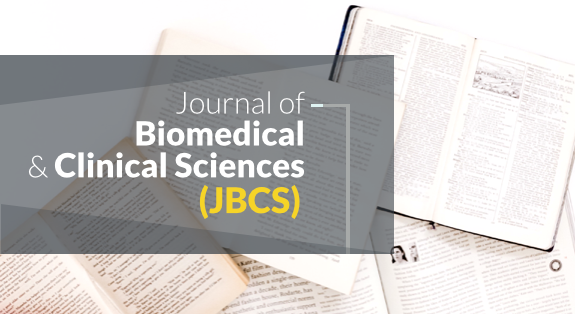
Expert Column
Obsessive-compulsive disorder (OCD) and COVID-19 pandemic

COVID-19 caused by infection with the SARS CoV-2 virus has become a major infection pandemic since March 2020 which resulting in more than 25 million people infected worldwide and leads to more than 800,000 deaths. A few of the preventive measures to prevent the spread of infection and to break the chain of infection include frequent hand washing, social distancing, frequent use of hand sanitiser, and home quarantine. These precautionary and preventive measures to combat COVID-19 are not without negative impact on the mental health of the general population. One of the common symptoms of obsessive-compulsive disorder (OCD) is repetitive obsessive contamination and compulsive hand washing. Interview with Dr. Mohammad Farris Iman Leong Bin Abdullah, Consultant Psychiatrist, Institut Perubatan dan Pergigian Termaju, Universiti Sains Malaysia will get you informed regarding the risk of OCD during COVID-19:
(1) Following the standard operating procedure implemented during the Restricted Movement Control Order (RMCO), would it possible to make people contracting OCD as they are advised to keep washing their hands or use hand sanitiser?
Response: Yes, there is a possibility that people who are exposed to too much media coverage and information regarding the high mortality rate and the negative impact of COVID-19, having an intense fear of getting infected, and their strong belief that COVID-19 can be prevented by frequent hand washing, social distancing, and frequent use of hand sanitiser will lead to constant fear and anxiety which may aggravate some people to develop OCD, especially with symptoms like obsessive contamination (repeated thoughts of being dirty, the surrounding is full of germs and viruses, and having high risk of being infected) and compulsive hand washing or repeated taking bath or cleaning body (repeated hand washing which they are compelled to perform due to the anxiety develop from the obsessive thoughts of contamination). In addition, those who are at high risk of worsening of OCD symptoms due to COVID-19 are those who already have OCD before the start of COVID-19. Even OCD patients who have recovered from OCD symptoms due to treatment are also at high risk of recurrence of OCD due to COVID-19 and MCO.
(2) Parents put too much pressure on their children to study, especially when they cannot go out during the MCO period, and they still have to study and face their computer every day. Will that leads to increase risk of OCD in their children? How do we recognise the early symptoms of OCD?
Response: No. Restricting children to go out and force them to study during MCO will not increase the risk of OCD. As I have mentioned in response to question 1, the risk factors are those who focused too much onto information on COVID-19, intense fear of being infected, those who are obsessed with the needs of frequent hand washing, need for good hygiene, and the need for frequent use of sanitiser. However, if the child already suffering from OCD before COVID-19 started, then the child is at risk of worsening of OCD symptoms or having a recurrence of OCD if the child gets too stressful as a result of being forced by parents to stay at home to study and do nothing else.
OCD is characterised by (a) obsessive thoughts (like repeated thoughts of feeling dirty, himself/herself and the surrounding is full of germs or repeated doubts that doors are not closed, gas is not shut off, etc. or repeated thoughts that objects are not placed in the right position or repeated urges/mind images to do something bad) and (b) compulsion (repeated hand washing/taking bath or repeated checking for doors/gas or repeated praying/counting/saying some words silently to distract the bad urges/mind images). In the context of COVID-19, the common OCD symptoms will be repeated thoughts of feeling dirty, himself/herself and the surrounding is full of germs followed by repeated hand washing/taking a bath or rubbing hands with sanitisers.
(3) Because of COVID-19, working at home is stressful. Can this also cause OCD? How do we know if we have OCD?
Response: Again the answer is the same as question 2. No risk for OCD for those who do not have OCD before in their life even if they are stress working at home. But those who already have OCD before COVID, yes, stress working at home will increase their risk of worsening of OCD symptoms or recurrence of OCD for those who have recovered. The risk factors for those who are normal to develop OCD during COVID are those who focus too much onto information on COVID-19, intense fear of being infected, those who are obsessed with the needs of frequent hand washing, need for good hygiene, and the need of frequent use of sanitizer. In the context of COVID-19, the common OCD symptoms will be repeated thoughts of feeling dirty, himself/herself and surrounding is full of germs followed by repeated hand washing/taking bath or rubbing hands with sanitisers. As a result of COVID-19, some people may also develop an intense fear of shortage of basic goods like food, water, medication, protective tools like mask and gloves may lead to hoarding disorder which is closely related to OCD in which the person will collect and accumulate all these basic goods in the house until there is no more space to put other things or belongings. This may be seen in some people who panicky to buy things and goods in the supermarket at the start of MCO.
(4) During the RMCO, patients with OCD worry about being infected and difficult to feel relaxed. Will the symptoms of repeated hand washing be more serious?
Response: Yes, OCD patients can have worsening of symptoms like worsening of repeated hand washing if their fear of getting infected and difficulty to feel relaxed become worsened during MCO. Even those OCD patients who had different OCD symptoms (like obsessive doubts and compulsive checking) before COVID-19, can also develop obsessive contamination and compulsive hand washing during MCO due to fear of getting infected.
(5) Nowadays, because people are worried about their safety wherever they go to and expose to strangers, will it cause many people to have an increased risk of OCD? Will this cause them to pay attention to disinfection, wash their hands, and wipe alcohol wipes all the time?
Response: Again, the risk factors to develop OCD during COVID-19 are those who focus too much onto information on COVID-19, intense fear of being infected, those who are obsessed with the needs of frequent hand washing, need for good hygiene, and the need of frequent use of sanitiser. In addition, patient with pre-existing OCD also have a high risk of recurrence or worsening of OCD symptoms. If anyone has these risk factors, then their chances of acquiring OCD during the COVID-19 pandemic will increase.
(6) Most celebrities suffer from OCD, depression, and eventually suicidal or anorexia symptoms. Are celebrities prone to develop OCD, depression and eventually suicide and anorexia?
Response: OCD and depression are associated with environmental factors, such as if people experience tremendous stress and unable to cope with it effectively, if they allowed the uncontrolled stress to be prolonged without asking for expert help to curb this, they will be prone for OCD and depression. In fact, OCD with co-morbid depression is common in many patients. Celebrities, on the other hand, are at constant stress due to the nature of their work and prolonged uncontrolled stress will lead to depression and OCD. Of course, if depression gets more severe and if untreated, will result in suicidal behaviour, which is the most severe symptom of depression. In fact, OCD with co-morbid depression is also a risk to develop suicidal behaviour. While for anorexia, be it anorexia nervosa or anorexia bulimia, for celebrities due to the nature of their work which needs to be good-looking and have a beautiful body are prone to and at risk of anorexia.
Scroll to Top












